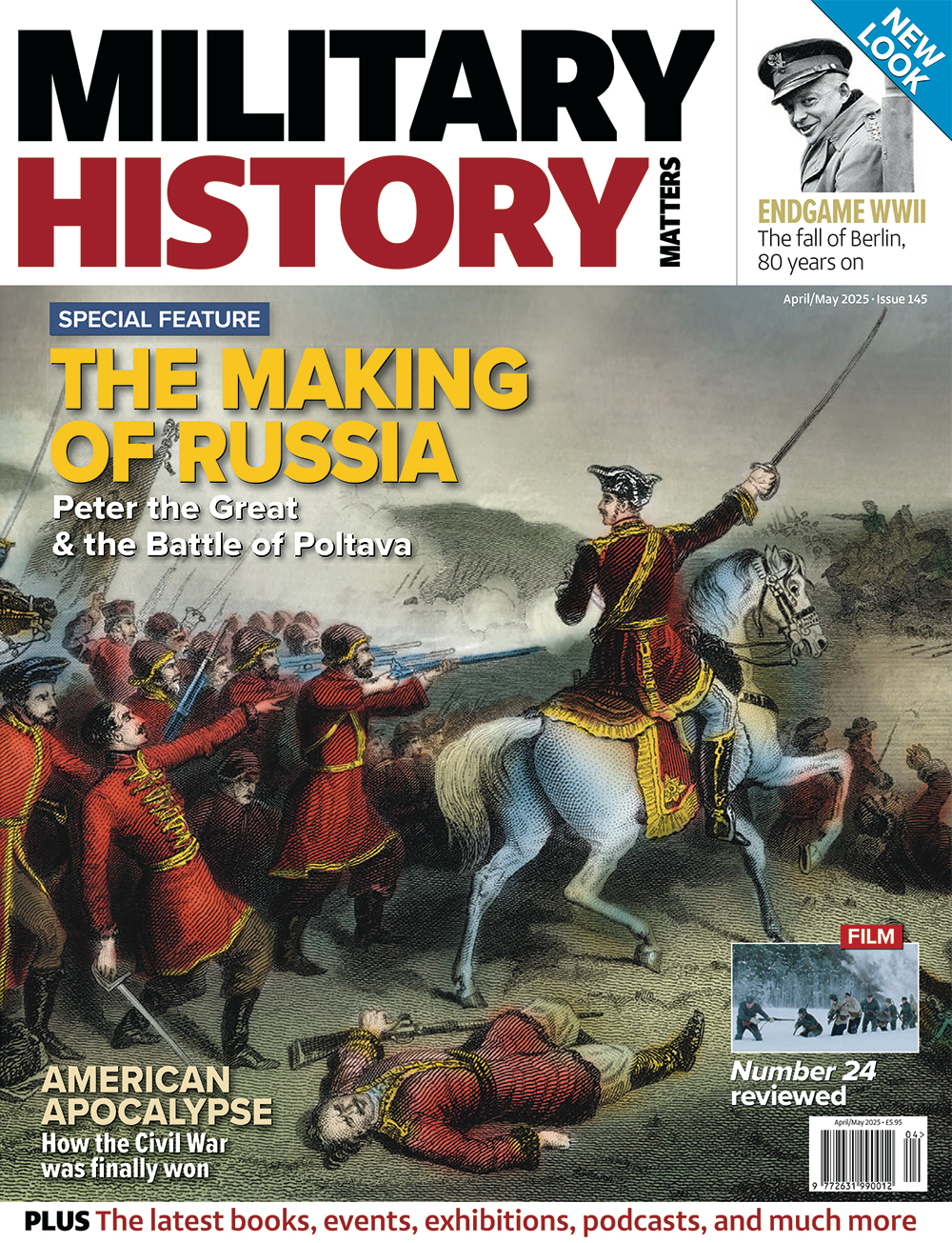The achievements of Peter the Great are undeniable: a statesman, diplomat, and military leader, he towers over Russian history – as the fanatical moderniser who built the city of St Petersburg and helped drag his country out of the Middle Ages, and as the prime mover behind Russia’s burgeoning power and influence in early 18th-century Europe.
As we discover in our cover story, however, such extraordinary achievements came at extraordinary cost: as he set about reforming the state, and as he ruthlessly pursued a vision of progress along more Westernised lines, he left behind a grim legacy of autocracy and state-sponsored violence that also serves as his memorial.
In a two-part special feature for this issue, Stephen Roberts first traces the life of this complex figure, then looks in detail at the Battle of Poltava, the epic 1709 clash of arms that helped him to progress his expansionist ambitions by breaking Swedish power in the Baltic.
Elsewhere, in the latest part of his series to mark the 160th anniversary of the end of the American Civil War, historian Fred Chiaventone looks at that conflict’s bloody final months, culminating in the Confederate surrender at Appomattox Court House on 9 April 1865.
Also in this issue, we have two articles with a Second World War theme: Taylor Downing continues his ‘Endgame WWII’ series by asking whether General Dwight Eisenhower, the supreme Allied commander, was right to leave the taking of Berlin to the Soviets; while David Porter considers the use of kamikaze tactics by Japanese forces as they neared defeat in the Pacific.
And finally, in the last part of our occasional series on the making of Britain’s imperial navy, Graham Goodlad looks back again to the 18th century – this time to reveal how the remarkable Admiral George Anson helped to transform a lacklustre maritime force into one capable of taking on all challengers.

